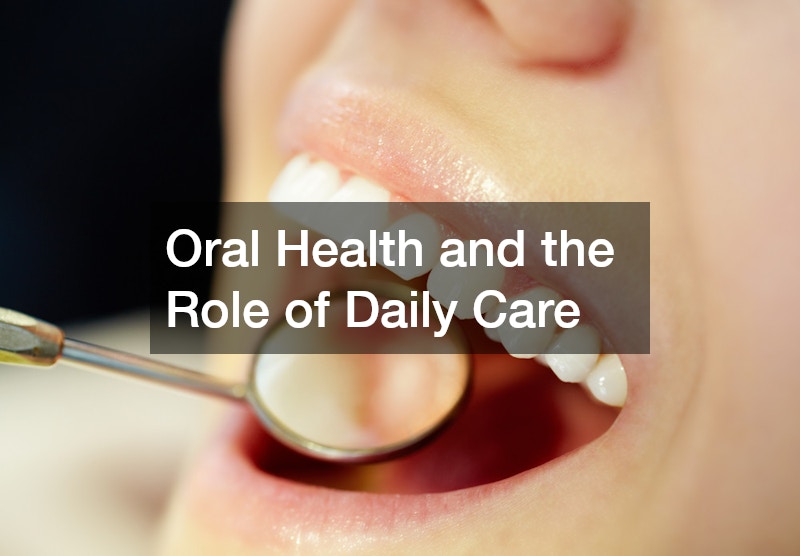Living well involves more than simply eating nutritious meals or exercising occasionally. It requires a thoughtful, consistent approach to nurturing the mind, body, and emotional well-being. When people think about improving their daily lives, they often focus on one area at a time, such as diet or activity levels. However, developing a broader and more holistic strategy is what leads to lasting positivity and change. Learning how to balance care for your physical health with practices that support stress reduction, meaningful relationships, and mental clarity can dramatically enhance your sense of vitality. In this sense, building a happier, stronger version of yourself becomes less of a vague aspiration and more of a set of intentional decisions that shape how you live. This foundation is central to life health and wellness because it ensures that your daily habits are aligned with your long-term goals.
Preventive Healthcare and Routine Screenings
Taking a proactive approach to your health is one of the most effective strategies for maintaining long-term well-being. Many individuals are inclined to seek medical attention only when something feels acutely wrong, but the most meaningful improvements in longevity and comfort come from preventive measures. Routine physicals, annual screenings, and age-appropriate testing help identify potential issues before they develop into more serious concerns. For adults approaching retirement age, understanding and evaluating medicare coverage is particularly important, as it helps determine access to necessary preventative services, screenings, and specialist care.
Preventive care also includes attention to vision and hearing. eye care exams are essential for preserving sight and detecting early signs of conditions such as glaucoma or cataracts. Many of these conditions progress silently, meaning they may not be detectable without professional screening. When caught early, most changes in vision health can be managed successfully through treatment plans that slow or prevent progression. Pairing these screenings with consistent follow-up ensures continuity of care over time.
Preventive planning also modifies how you think about everyday decisions. Instead of reacting to symptoms, you anticipate ways to strengthen the body and reduce risk. This philosophy can include choosing balanced meals, taking breaks during sedentary work, staying hydrated, and scheduling rest days during physical routines. It also involves recognizing stress and responding with positive interventions before it escalates. These steps reinforce your investment in life health and wellness by creating a stable baseline of physical support that improves energy and resilience. Preventive healthcare is not a single appointment or test; it is a long-term relationship with habits and professionals who support you in sustaining well-being through every stage of life.
Oral Health and the Role of Daily Care
Oral health is often separated from general well-being, yet it plays a significant role in systemic health, social confidence, and daily comfort. Consistent dental treatment supports more than clean teeth; it helps maintain gum health, reduces the risk of infection, and protects the integrity of the jawbone and facial structure. The mouth serves as an entry point to the rest of the body, and bacterial imbalance can influence inflammation and cardiovascular health. Therefore, caring for oral hygiene contributes directly to broader physical wellness.
Many individuals delay oral care because they associate treatment with discomfort or cost, but modern dentistry offers many supportive techniques for ensuring both function and aesthetics. For example, when teeth become damaged by decay or trauma, dental crowns are commonly used to restore shape and strength. These protective caps improve stability, preserve bite alignment, and restore the ability to speak and chew comfortably. Addressing structural dental concerns promptly prevents additional complications such as shifting teeth, gum recession, or nerve damage.
In addition to restorative treatments, cosmetic dentistry services help individuals feel confident and comfortable in social and professional contexts. A healthy smile can influence communication, self-expression, and perceived approachability. Whitening, alignment, and reshaping treatments reinforce the connection between physical comfort and emotional well-being.
Maintaining oral health is not limited to clinical interventions. Daily brushing, flossing, hydration, and limiting sugar intake all contribute to a strong foundation. People who integrate oral care into their total well-being approach reinforce life health and wellness by recognizing the relationship between physical systems. When you protect oral health, you also support digestion, immune strength, and self-confidence in everyday interactions.
Nutrition, Energy, and Balanced Eating
Nutrition serves as the fuel for every system in the body. A balanced diet supports tissue repair, cognitive function, immune response, and metabolic stability. Yet in modern life, processed foods, irregular meal times, and convenience-driven diets often interfere with the body’s natural balance. Developing structure around food choices helps ensure that energy remains steady throughout the day and that meals contribute to rather than detract from wellness.
For individuals working toward healthier body composition or learning how to maintain nourishment without restrictive patterns, weight loss programs can offer structure and accountability. The most effective programs are those that prioritize whole foods, gradual behavior change, and sustainable routines, rather than extreme calorie reduction or short-term dieting cycles. A focus on vegetables, whole grains, lean proteins, and healthy fats typically leads to increased energy, improved skin health, and reduced inflammation.
Hydration also plays a vital role. Drinking water throughout the day supports cellular function, digestion, and cognitive clarity. Many individuals mistake thirst for hunger, leading to overeating or snacking that does not provide the nutrients the body needs. Maintaining hydration routines is a simple way to improve both comfort and energy levels.
Understanding the emotional aspect of eating is equally important. Food often carries cultural, social, and psychological significance. Recognizing the difference between nourishment and emotional coping allows individuals to build habits that support satisfaction without creating dependency. Learning to listen to hunger cues, choosing foods that make you feel well, and planning meals ahead of time help reinforce your life health and wellness goals by creating consistency and reducing stress around eating.
Physical Activity and Movement for Longevity
Movement is essential for physical strength, cardiovascular health, and emotional balance. You do not need to train like an athlete to benefit from regular activity; even moderate daily movement has measurable effects on longevity and quality of life. Exercise improves blood flow, supports joint health, strengthens bones, and boosts immune function. It also stimulates the release of endorphins, which elevate mood and reduce stress.
In many cases, consistent movement reduces the likelihood of needing immediate health care interventions by preventing conditions related to inactivity, such as high blood pressure, obesity, and insulin resistance. Incorporating movement into your routine does not require a gym membership or complex equipment. Walking, stretching, body-weight exercises, household tasks, gardening, and active hobbies all contribute to cardiovascular function and muscular endurance.
Variety is key. Combining strength training, flexibility exercises, and aerobic movement produces the most well-rounded benefits. Strength training improves bone density and muscle mass, while flexibility routines support mobility and prevent injury. Aerobic exercises such as cycling, swimming, and brisk walking strengthen the heart and lungs.
Rest and recovery are also important. Overexertion can lead to fatigue or strain, which discourages consistency. By balancing activity with restorative practices such as stretching, hydration, nourishing meals, and adequate sleep, you develop a routine that sustains itself. This balanced approach reinforces life health and wellness by integrating physical movement into daily life in approachable and enjoyable ways rather than as a task driven by pressure or guilt.
Supportive Therapies and Additional Wellness Approaches
In addition to foundational habits such as movement and nutrition, some individuals integrate supportive therapies to improve cellular health and energy levels. For instance, iv therapy has become a popular option for replenishing hydration, vitamins, and electrolytes more rapidly than oral supplements. While such treatments are not replacements for foundational health practices, they can provide valuable support during periods of fatigue, intensive training, recovery from illness, or high stress.
Supportive therapies also include massage, acupuncture, chiropractic treatments, and mindfulness-based approaches such as meditation and breathwork. These therapies help regulate the nervous system, improve pain management, enhance circulation, and support relaxation. When used thoughtfully, they contribute to a comprehensive wellness approach that addresses not only physical symptoms but also emotional and energetic balance.
However, supportive therapies should be incorporated carefully and with guidance from trained professionals. Understanding your personal health needs and goals is essential to determining which treatments will be beneficial. Ideally, these therapies complement a lifestyle that already prioritizes nourishment, rest, movement, and preventive care.
Integrating supportive therapies provides space for reflection, recovery, and improved comfort in daily routines. This reinforces life health and wellness by acknowledging that well-being involves both physical and emotional dimensions and benefits from experiences that relieve tension, restore energy, and encourage mindful presence.
Weight Management Strategies and Medical Support Options
For individuals who face difficulty with metabolism, appetite regulation, or sustainable weight management, medical support can play a significant role in improving outcomes. In some cases, healthcare providers may recommend interventions such as semaglutide injections to assist with appetite control and weight reduction. These medications are designed to regulate hunger signals and promote gradual, steady changes in body composition when combined with structured nutrition and activity routines.
However, medical support should never replace healthy lifestyle habits. These treatments are most effective when used as part of a comprehensive plan that includes balanced meals, hydration, physical movement, and emotional support. Working with healthcare professionals ensures that metabolic changes occur safely and that overall health remains the priority.
Weight management also involves developing a supportive environment. This may include planning meals in advance, keeping nutrient-dense foods accessible, limiting highly processed snacks, and engaging in activities that bring joy rather than stress. Emotional well-being plays a key role in weight management because stress, anxiety, and emotional fatigue often trigger overeating or avoidance of physical activity.
Focusing on gradual progress rather than rapid change allows individuals to maintain motivation and confidence. This patient, compassionate approach strengthens life health and wellness by promoting habits that are sustainable, balanced, and aligned with long-term goals rather than short-term outcomes.
Accessing Healthcare When You Need It
Convenient access to healthcare is essential for maintaining wellness, especially when unexpected concerns arise. A walk in clinic can be an important resource for receiving timely evaluation and treatment without needing a scheduled appointment. These clinics often provide services such as diagnostic testing, vaccinations, wound care, and treatment for minor illnesses. Access to prompt care prevents routine health concerns from escalating into more serious complications.
Immediate access to healthcare also encourages individuals to seek help early rather than waiting until discomfort becomes severe. This aligns closely with a preventive care mindset and supports better outcomes over time. Clinics and urgent care centers complement primary care providers by offering flexible hours, shorter wait times, and approachable environments for individuals who may feel anxious about medical appointments.
Developing a supportive relationship with healthcare professionals ensures that when you are informed about where to go for care, when to schedule follow-ups, and how to navigate insurance or financial planning, you reduce stress and confusion during times of illness or uncertainty.
This strengthens life, health and wellness by making medical support an accessible and natural part of daily life rather than something only sought during emergencies.
Emotional Balance, Mental Wellness, and Rest
Emotional well-being forms the foundation of how we think, communicate, and engage with our environment. Stress, anxiety, and fatigue can influence physical health, sleep quality, appetite, and productivity. One of the most important steps in sustaining mental balance is learning to recognize when internal tension begins to build. Once recognized, it becomes possible to intervene with supportive strategies that encourage rest and emotional clarity.
Restorative practices include mindfulness meditation, journaling, gentle stretching, nature walks, social connection, creative expression, and counseling or therapy. Each individual may find different practices more effective depending on personality, environment, and emotional needs. Building a routine that includes intentional rest ensures that stress does not accumulate to a level that interferes with well-being.
Sleep also plays a critical role in mental and physical health. Quality sleep supports memory, hormonal balance, immune function, and mood regulation. Establishing routines that promote restful sleep—such as consistent sleep times, reduced screen exposure before bed, and calming evening activities—can significantly improve daily energy and emotional resilience.
Developing emotional awareness strengthens interpersonal relationships as well. When we can acknowledge and express emotions with clarity and respect, communication becomes more meaningful and supportive. This reinforces community connection and reduces isolation.
By prioritizing emotional well-being, individuals strengthen their foundation for life health and wellness and create a sense of stability and groundedness that supports all other aspects of personal growth.
Closing Perspective: Building a Sustainable Path Forward
Developing a healthier, happier, and stronger self takes time, patience, and consistency. It is not defined by perfection but by the willingness to show up for yourself each day. When preventive care, oral health, nutrition, physical movement, supportive therapies, medical guidance, accessible care, and emotional balance work together, they create a powerful framework for long-term well-being. Each decision you make contributes to your overall path, and taking small steps consistently creates profound change over time. By honoring your goals, your body, and your emotional needs, you strengthen your life, health, and wellness and build a foundation for a more fulfilling and resilient future.






